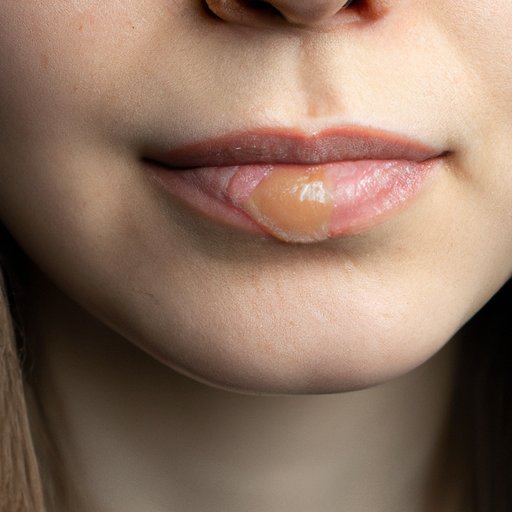
I. Introduction
Herpes on lips, also known as cold sores or fever blisters, is a common viral infection caused by the herpes simplex virus (HSV). The virus can be transmitted through direct contact or by sharing items such as towels, razors or utensils. While there is no cure, seeking treatment is important to reduce the frequency and intensity of outbreaks, alleviate discomfort, and prevent transmission. This article will explore different treatment options, from topical creams to lifestyle changes, for those wondering how to get rid of herpes on lip.
II. Topical Treatments
Topical treatments refer to creams or ointments applied directly to the affected area. One of the most common forms of treatment for herpes on lips is antiviral creams or ointments. These include acyclovir, docosanol, and penciclovir, which can reduce the duration and severity of symptoms. There are also herbal remedies and essential oils that may help treat herpes on lips, such as tea tree oil, aloe vera, or lemon balm. It’s essential to do your research before trying any topical treatment and consult a healthcare provider to determine what’s suitable for you.
III. Medications
Prescription antivirals such as acyclovir, famciclovir, and valacyclovir can also be used to treat herpes on lips. These medications work by stopping the virus from replicating, reducing the severity and duration of symptoms. While prescription antivirals can be effective, they can also have side effects. It’s important to discuss the risks and benefits of these medications with a healthcare provider. Over-the-counter antivirals, such as Abreva, are also available and can help reduce symptoms.
IV. Home Remedies
Home remedies can help manage symptoms of herpes on lips and may be used alone or with other treatments. Some popular home remedies include applying a cold compress, aloe vera gel, or taking lysine supplements. A cold compress can help relieve pain and swelling by constricting blood vessels, while aloe vera can help soothe irritation and promote healing. Lysine, an amino acid, has antiviral properties and may help reduce the frequency of outbreaks. It’s essential to note that while home remedies may be helpful, they are not a substitute for medical treatment and should be used with caution.
V. Lifestyle Changes
Individuals with herpes on lips can manage symptoms and reduce the frequency of outbreaks by making lifestyle changes. For example, reducing stress levels, getting enough rest, and incorporating exercise into daily routines can play a significant role in managing herpes outbreaks. Avoiding triggers such as UV radiation and injury can also help prevent outbreaks. Diet can also impact the frequency and severity of outbreaks. Consuming foods high in lysine and low in arginine, such as vegetables and legumes, can help boost the immune system and reduce the frequency of outbreaks.
VI. Alternative Therapies
Alternative therapies such as acupuncture, chiropractic, and meditation can complement other treatments for herpes on lips. These therapies can help boost the immune system, reduce stress levels and promote overall wellness, which can have a positive impact on managing outbreaks. It’s essential to consult a healthcare professional familiar with alternative therapies and determine what is appropriate for you.
VII. Preventive Measures
There are steps individuals with herpes on lips can take to prevent transmission and reduce the risk of contracting the virus. These include practicing safe sex, avoiding kissing individuals with visible cold sores or fever blisters, and avoiding sharing personal items such as utensils, towels, and razors. Disclosure is also an essential aspect of preventing transmission. Disclosing to sexual partners, family, and friends can help reduce the stigma surrounding herpes and promote safe practices.
VIII. Emotional Support
Having herpes on lips can have a significant emotional impact on individuals. Managing stigma, fear, and anxiety can be challenging. Finding emotional support through support groups, counseling, or therapy can help individuals manage the emotional impact of having herpes on lips and promote overall wellness and quality of life.
IX. Conclusion
While there is no cure for herpes on lips, there are numerous treatment and preventive options available. Seeking medical treatment, incorporating lifestyle changes, and finding emotional support are crucial in managing herpes outbreaks. With the right treatment and support, individuals with herpes on lips can manage their symptoms and live fulfilling lives.




